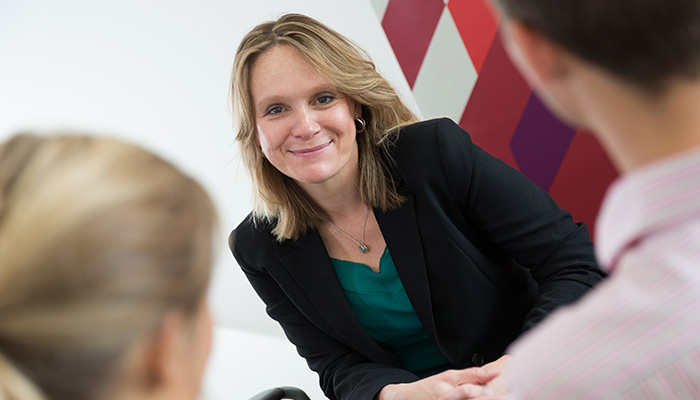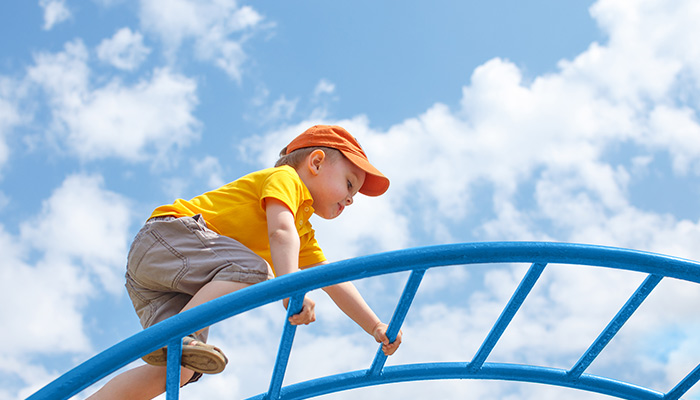Your child is heading off to boarding school soon - too soon. You are excited, terrified, proud, relieved, sad and a mix of those emotions at any given time. Maybe this was always what you planned – perhaps it's a family rite of passage - but now that it is definitely a reality, you are filled with worry. Have I prepared him well enough? Is she ready? Will he be able to cope? What if I miss her too much? Will he still need me? How will I know if he is okay? Can I still be a strong influence in her life? The endless stream of questions runs like a loop tape through your consciousness as you busy yourself with work. I just want to know he is going to be okay. I just want her to be happy.

Resilience: The way parents of children at boarding school manage their own stress affects how students cope with the experience, says Professor Jennie Hudson from the Centre for Emotional Health.
First of all, take it easy on yourself. This is a big deal. It is pretty normal to have worries like this about your kids, especially during significant transitions and uncertainty. Still, it is worthwhile to think about what you can do to manage your own response, so that can you not only reduce your own stress but reduce your child’s as well.
The power of the pen
As much as I wish to ignore this fact myself as a parent, we are important role models for our children and how you handle the transition to boarding school will have a big impact on how your child copes with it. So, if you want raise an emotionally healthy child, you need to invest in our own emotional health.
Thanks to technology this is much easier than it used to be. There are apps to track your physical health, your exercise, your sleep, your screen time, your drinking, your mood and your worries. There is still so much we need to learn about improving resilience, but some of the key drivers of good mental health and well-being include eating well, exercising and getting sufficient sleep. Even though this advice is not ‘news’ to you, it is sometimes hard to stick to these guidelines, especially when there are so many competing demands for your time. If you feel that your worries are consuming you and getting in the way of being able to focus at work, interact with friends and family, or get to sleep, there are online programs where you can access psychological services without leaving the comfort of your home or office. Having the courage to speak to your GP about your mental health is also a great first place to start.
When faced with uncertainty, you may find you start thinking about the worst possible outcomes and rehearse what seem like catastrophic “inevitabilities.” A useful coping strategy is to write down these thoughts and take a scientific approach to them, rather than entertaining less likely scenarios.
Ask yourself “What’s most likely to happen?” “How has he handled other transitions?” “What happens to most other children in this situation?” Although it is possible that something negative happens, consider how likely it is to happen and even if it does happen, will your child be able to handle it? Thinking based on facts can reduce unnecessary distress, but it takes practice. In speaking to a dear friend of mine recently, whose 13-year-old boy went to boarding school in year 7, I asked her how she managed this transition and she said “It was all about letting go. As hard as it was, I realised I just had to let go.” For some people, this process of thinking realistically, can help to “let go” of their worries.

Happiness: Investing in your own emotional health is a worthy endeavour when it comes to raising happy children, says Hudson.
Gradual resilience over 'deep end' approach
Strong social networks are a particularly important buffer in times of stress. Reach out to the people in your life who you know are going to be there for you and listen to you. Sometimes people withdraw from the world in times of stress but keep up the activities that bring you joy, with the people you enjoy.
Be prepared for the transition. Use the months (preferably years!) leading up to the first day of boarding school to practice the tasks your child will need, like being away from you, sleeping away from home, speaking to unfamiliar people, making new friends, and asking for what they need.
Are there any tasks your child avoids because they are worried, like asking for directions, being on their own or standing up for themselves? Work out a plan to practice handling these situations in the coming months to gradually increase their confidence handling unfamiliar situations and gradually increasing their independence.
One of the best ways to build resilience in your child is to gently encourage them to move out of their comfort zone by supporting them to gradually face situations they find challenging or anxiety-provoking. We recommend a gradual approach because this means each step does not feel overwhelming and is more manageable. This has better outcomes than “throwing them in the deep end,” and is less likely to have a negative impact on your relationship with them.
A gradual approach also means the child is less likely to abandon the practice. Take advantage of all the orientations the school provides and any trial periods, so that the first day is not really a ‘day of firsts’ because they have had many opportunities to prove to themselves (and to you!) they can handle it. Communicate the message to your child, through your words, actions and even your facial expressions, that you are confident in their ability to handle life’s obstacles.
One of the strongest childhood predictors of whether a young person is happy in adulthood is their emotional health as a child. It is actually more important than the type of school they go to. More important than how much money you spend on them. If your goal is to raise a healthy happy adult, then investing in their emotional health as well as your own is a valuable endeavour.
Professor Jennie Hudson is the Director at the Centre for Emotional Health in the Department of Psychology.
Her research focuses on understanding factors that contribute to the development of anxiety disorders in children and adolescents. Her work also involves the development and evaluation of evidence based treatments for anxiety and depression in young people.



